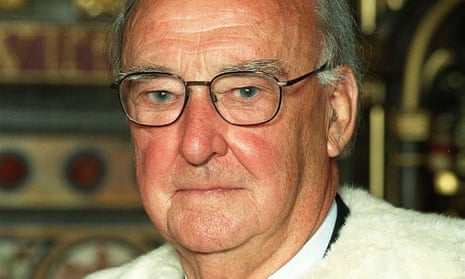Gwilym Prys-Davies, who has died aged 93, was a passionate Welshman with a lifelong dedication to the politics and culture of his beloved country. He was the author of the first document commissioned by the Labour party setting out the possibilities of an elected government in Wales, and the first member of the House of Lords to take the oath in Welsh. As a young solicitor he pioneered the use of the Welsh language in courts of law.
His early enthusiasm for Welsh national politics led him first to become a founder member of the Welsh Socialist Republican Movement and then to join Plaid Cymru, but after the election of the postwar Attlee government he came to a recognition that his desire for devolution of power to Wales would most likely be achieved within the Labour party. He left Plaid Cymru in 1949, joined Labour shortly afterwards and from 1953 worked consistently within the party to devise a means of securing a democratically elected institution for Wales.
He was commissioned by a fellow Welshman, Jim Griffiths, a former miner and trade union leader who became Clement Attlee’s minister for national insurance and one of the principal architects of the welfare state, to write a paper examining ideas for Welsh devolution. This was published as A Central Welsh Council in 1963, the year before Labour returned to office and the new prime minister, Harold Wilson, appointed Griffiths as the first secretary of state for Wales.
Prys-Davies’s only attempt to seek election to the House of Commons himself came two years later, in a 1966 byelection, and was a disaster. In the general election in March that consolidated the Wilson government’s majority, Prys-Davies had campaigned successfully for the re-election of Megan Lloyd George as Labour MP for Carmarthen. Within weeks, Lloyd George died of breast cancer and Prys-Davies was selected to defend the seat for Labour in the ensuing byelection, only to lose to the Plaid Cymru candidate, Gwynfor Evans, who had come third in March. The ignominious defeat and the election of the nationalist party’s first MP were difficult for Prys-Davies, who wrote later that, despite his feelings about the result: “I knew that I could never be less of a Welshman.”
By this time Prys-Davies had a busy practice as a solicitor in Pontypridd and, as well as regular legal work, engaged in charitable work assisting and advising miners and their families on litigation issues. He helped ensure that parents of the child victims of the Aberfan disaster of 1966 secured proper legal representation. From this connection with the impact of heavy industry on people’s lives, he developed a strong interest and concern for public health, the welfare of the elderly and those who suffered from mental illness. He became chairman of the Welsh Hospitals Board from 1968 until that body’s responsibilities were taken over by the Welsh Office in 1974.
The return of Labour to office that year brought the appointment of John Morris (now Lord Morris of Aberavon ) as Welsh Secretary. He announced his intention of introducing devolution to Wales and appointed Prys-Davies as his part-time political adviser. The two men had met at the University College of Wales in Aberystwyth, where Prys-Davies had studied at the faculty of law from 1946 to 1952, and formed a close, if argumentative, political friendship.
The outcome of the subsequent referendum in 1979, in which 80% of the Welsh electorate voted against devolution, was, in his own description, “traumatic” for Prys-Davies. He was predictably delighted, however, when the narrow majority recorded in the 1997 referendum led to the establishment of the Welsh assembly. During these years, he was also actively involved in the negotiations that led to the launch of a fourth television channel for Wales in 1982.
That year Prys-Davies was made a life peer and was Labour spokesman in the Lords on health, Northern Ireland and the Welsh Office. His shyness meant he was not a well-known public figure. But he was a kind man, with a sharp intelligence, who inspired and motivated his friends, and he was an active and diligent peer until his retirement in May 2015.
Born Gwilym Prys Davies in Llanegryn, Merioneth, he changed his name by deed poll to Gwilym Prys Prys-Davies on appointment to the peerage, in order to be known as Lord Prys-Davies. He was the son of William and Mary Davies, who ran a post office. He went to Towyn school and joined the Royal Navy during the second world war, in 1942, serving on the North Atlantic convoys.
At university he met Llinos Evans, who became his wife in 1951. She died in 2010. He is survived by their three daughters, Catrin, Ann and Elin.

Comments (…)
Sign in or create your Guardian account to join the discussion